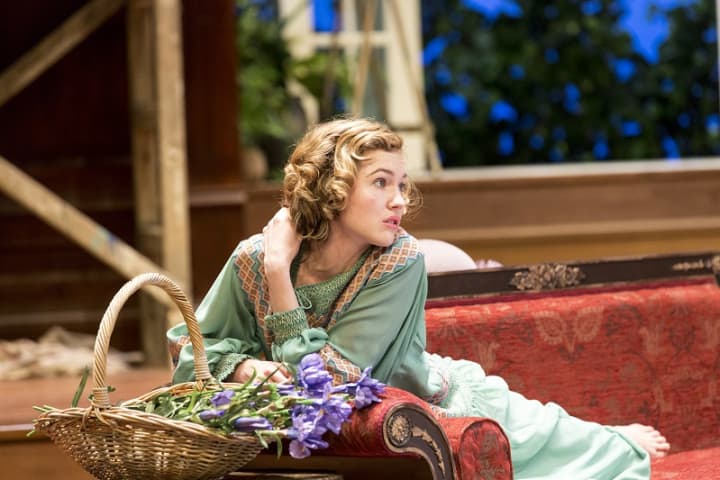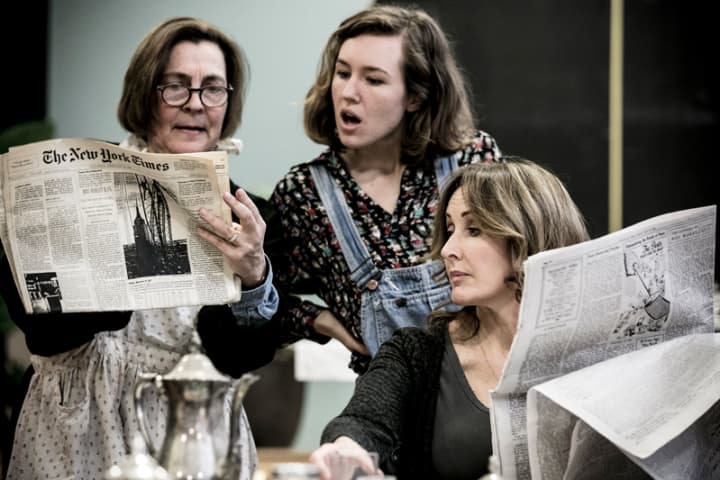‘I am never out of opium dens, cocaine dens, and other evil places. My mind is a mass of corruption.’ – Noël Coward, interview with the Evening Standard 1925.
He had gone a long way to creating himself before he had created a career. By the time of his first major hit, The Vortex in 1924, Noël Coward’s distinctive persona was in place, perfected in dozens of society parties and flapper-filled soirees in which, despite being just another struggling actor and writer, he dined out on the promissory note of his wit and charm. We see him now: the body is slim, the attire well cut, fashionable and elegant (though not flamboyant – he saw danger in that), and the brilliantined hair swept back from the long, impassive face. The voice that we recall is clipped with severe precision, indicating emotional reserve and a carefree detachment from a world upon which, like Wilde before him, he could pass flippant comment. (‘Only when he is frivolous,’ wrote John Lahr, ‘does he become in any sense profound.’) He could complete the characterisation with a modish prop or two: a cocktail, a cigarette, a silk dressing gown, a telephone.
As old as the century itself, the young Noël Coward represented everything modern and stylish. He quickly became the front man for the jazz age, the brightest of bright young things, an icon for some, a curiosity for the majority and a sign of social and moral degeneration to conservatives. In the first flush of his fame, The Sketch dedicated its cover to a photo of him propped up in bed in silk pyjamas, a breakfast tray on his lap, doing business on the telephone. It is difficult now to imagine how much blood this voluptuary image boiled. ‘I am seldom mentioned in the press without illusions to cocktails, decadence and post-war hysteria,’ he protested at the time. But since this was precisely the effect he had been assiduously developing since his late teens, one shouldn’t take the complaint seriously.
‘Even the youngest of us will know, in fifty years time, exactly what we mean by “a very Noël Coward sort of person.”’ Critic Kenneth Tynan wrote that in 1953 and, with the fifty years now more than up, the prediction has not, in the main, turned out true. It isn’t so much that Coward is forgotten, though with thirty years passed since his death the image has inevitably faded, but that nowadays one rarely encounters ‘a Noël Coward sort of person.’ He is not emulated as he once was. His mix of high camp and reserve was peculiar to its time. In these days of sexual freedom, of Graham Norton, Marilyn Manson and madi gras, we will never be short of high camp, but reserve has become redundant.
His persona hid a multitude of embarrassments. Coward’s precise diction betrayed not a scrap of working-class South London where in 1899 he was born and grew up in gradually declining fortunes. His father Arthur was a clerk for a music company who enjoyed socialising and drinking too much to provide for his family over the long haul. Violet, Noel’s strong-willed mother, had descended from solid middle-class stock and, having landed with a jolt in suburban penury, never forgave her husband for his feckless nature. From her the son developed an ineradicable streak of class-consciousness and patriotism. ‘I am England and England is me,’ he once said, but the England that he believed he represented and that turned up in flag-waving exercises such as his revue Calvalcade or the wartime play This Happy Breed was a perishable and convenient fiction: a prosperous three-tiered society, happiest when everyone knew their place.
Coward himself was not content with the place birth assigned to him. A child actor of doubtful talent, his true gift, his dazzling conversational wit, emerged in his teens. The developing Coward persona became an entry card to the fashionable parties on both sides of the Atlantic. Out of work in New York, the young Coward would cadge free theatre tickets from agents and friends in the hope that a chance meeting in the lobby would result in a dinner invitation. He rarely went home hungry.
When finally he had the money to back-up the façade, he redoubled efforts to present himself as the carefree man-about-town – though that image, too, was never the entire truth. For one thing, he secretly supported his parents and his aunt Vida, paying their rent and bills, or providing houses and worrying over them constantly until their deaths. For another, he worked very hard. Coward promoted an impression of effortless facility and was proud of how quickly he wrote. Blithe Spirit was written in six days, and added together his five major comedies were written in under six weeks. But Coward wrote sixty works for the stage, countless songs and sketches, novels, short stories, volumes of autobiography and screenplays, all while maintaining a career as a performer. The trick to such prolificacy was simple: as a matter of strict discipline, he rose early and worked solidly until lunchtime.
The Coward persona also helped disguise his limited range as an actor. He was never convincing in anything other than the parts he created as star vehicles for himself, including Leo Mercuré in Design for Living, were in effect variations of the public image that he had down pat: haughty sophisticates in dressing gown or evening dress, bantering with witty flippancy, cigarettes poised, never daring to stray too far from the cocktail cabinet.
‘I’m always acting – watching my self go by that’s what’s so horrible – I see myself all the time, eating, drinking, loving, suffering –sometimes I think I’m going mad.’
Garry, in Noel Coward’s Present Laughter (1942)
As with the purloined letter in Poe’s story, Noël Coward’s homosexuality was hidden in plain view. The jazz-age dandy that he presented to the world reads so obviously as gay to us that we might wonder why in his lifetime it wasn’t public knowledge. The answer is that it was and it wasn’t; that is, it was seen but not acknowledged. Of course, in the theatre and social circles in which he operated, his homosexuality was an open secret. Theatrical minds have traditionally been broader on sexual matters than the general run of society. Coward did little to hide his affairs and his long-term partners sometimes worked on his staff.
To the public at large, so much of his persona could be subsumed in received notions of ‘theatricality’ and ‘bachelorhood.’ But this licence, he knew, would only protect him so far. Homosexuality was illegal and while the British public didn’t mind assuming that someone was gay, to have it proved was too much to stomach. Oscar Wilde presented Coward with an object lesson. Feted one moment, jailed and disgraced the next, Wilde had committed the ultimate sin of being caught, and Coward was determined – a determination grown out of fear – that it wasn’t going to happen to him. From his first years in the public eye, he knew where the brink lay and made sure to stand a few long strides from it. Cecil Beaton once received a typical finger-wagging from Coward about being too camp: ‘It closes too many doors… It’s hard, I know. One would like to indulge one’s own taste. I myself dearly love a good match, yet I know it is overdoing it to wear tie, socks and handkerchief of the same colour.’
Coward’s entire career was conducted under the shadow of both anti-homosexual law and the capricious censorship of the Lord Chamberlain’s office whose sensitivities were tuned to pick out the merest allusion to homosexuality. Paradoxically, this gave edge and style to Coward’s work, as it did to that of other gay playwrights of the twenties and thirties, particularly Somerset Maughan and Terrence Rattigan. In their survey of twentieth century British theatre Changing Stages, Nicholas Wright and Richard Eyre make the general point: ‘For the illegal gay – indulged on the one hand, suspected on the other – danger and concealment were the colours on the palette. When he wrote, the evasions flowered.’
Evading like mad, Coward succeeded as a dramatist largely by applying a camp aesthetic to a heterosexual situation. Private Lives, the archetypal Coward play of the period, most clearly manipulates the basic elements of camp – a flippant treatment of serious matters, a serious treatment of the trivial, a rejection of convention and an undisguised self-absorption. Witty, conceited and bad-mannered, the reunited lovers Elyot and Amanda are too alike to ever be happy together and too unconventional to be happy with anyone else. It is a codified version of a gay cliché, the impossibility of homosexual love, that Coward exploited with variations in his best comedies, including Design for Living.
Published on 25 January 2014





